The Race for DC’s Ward 2: Bolton, Downs, Fernández and Pinto address LGBTQ issues
In a special Metro Weekly forum, Ward 2 Council candidates make their pitch to LGBTQ voters

In a year when the presidential election is consuming much of the oxygen when it comes to political coverage, local races can easily be overshadowed. City government isn’t the “sexiest” beat to cover, especially compared to the polarizing debates over hot-button cultural issues that frequently receive attention on a national stage. But the decisions made by Councilmembers affect District voters’ daily lives in multiple ways, both seen and unseen. Yet due to the District’s heavy Democratic tilt, most elected officials only have to worry about surviving the Democratic primary relatively unscathed.
This year is different — at least for voters in the city’s Second Ward, which stretches from Georgetown in the west through the Dupont and Logan Circle neighborhoods and downtown D.C. to Chinatown and Judiciary Square in the east. Due to the resignation of former Ward 2 Councilmember Jack Evans over ethical issues, voters were given an option to select a temporary replacement in a June special election. Current Councilmember Brooke Pinto, a political newcomer, emerged victorious in both the special election, as well as in the Democratic Party primary, where she beat several more well-known challengers, including a number of ANC commissioners and even Evans himself.
[infolink1]
However, given the emergence of political talent that had been stifled or shied away from running during Evans’s nearly three decades in office, this year provides the rare competitive general election for a ward seat. Pinto faces a challenge from openly gay ANC Commissioner Randy Downs, as well as scientist Martín Miguel Fernández, and journalist Peter Bolton.
Given Ward 2’s large LGBTQ community — which provided a significant amount of Evans’ political support throughout his career — Metro Weekly decided to ask the candidates seeking to represent the ward several questions about their stances on various LGBTQ-related issues and gauge their level of commitment to the LGBTQ community going forward. Here are their responses:
The Candidates
Peter Bolton
33
Originally from California
Currently employed as a journalist
Running as: Statehood-Green Party
Randy Downs
34
Originally from Missouri
Currently employed as the Operations Manager at the Sierra Club
Running as: Independent
Martín Miguel Fernández
29
Originally from Peru
Currently employed as a scientist
Running as: Independent
Brooke Pinto
28
Originally from Connecticut
Currently employed as Ward 2 Councilmember
Running as: Democrat
—
Recently the Council has discussed redirecting Metropolitan Police Department funds to community-based organizations that would take the place of police in certain situations. What LGBTQ-specific initiatives or service organizations do you believe deserve some of that reallocated funding, and why?
Peter Bolton: Casa Ruby, because transsexual individuals face a particular threat of violence. The Wanda Alston Foundation and SMYAL, because LGBTQI+ services have been chronically underfunded in this city.
Randy Downs: We should reallocate resources from police to underfunded, highly-needed services that are backed by evidence showing their effectiveness in reducing violence and crime. These include: mental health, social work, and crisis intervention services, violence interruption programs, and homelessness street outreach services to help people apply for housing and needed documentation.
With LGBTQ individuals disproportionately represented among those experiencing homelessness, and a whopping 40% of youth in D.C. who are experiencing homelessness identifying as LGBTQ, it is critical to ensure LGBTQ service providers are well resourced. SMYAL, the Wanda Alston House, Casa Ruby, the DC Center, and other organizations that focus on the safety of our community should have increased funding because they are uniquely situated to meet the housing, health, and other critical needs of the LGBTQ community. Similarly, harm reduction services like those provided at HIPS must also receive funding.
I believe housing is the foundation of wellbeing. Taking a “housing first” approach to meeting people’s needs allows all other aspects of life to improve. As an Advisory Neighborhood Commissioner in Dupont Circle, I advocated for affordable housing for LGBTQ seniors, and I believe resources should continue to be allocated to housing for the senior and overall LGBTQ population. Together with critical government agencies and LGBTQ service providers, I believe we can better meet the needs of our diverse LGBTQ residents.
Martín Miguel Fernández: I fully support re-investing MPD’s bloated budget in social workers and other community-based initiatives. As far as LGBTQ-related reallocations go, I would propose a few things:
- Boosting funding for grant programs focusing on the LGBTQ community, which could be run through MOCA and the Office of LGBTQ Affairs. These grants would help fund community organizations doing critical work, as well as LGBTQ businesses that are essential to maintaining safe social spaces and neighborhood character and history.
- Increasing investment in LGBTQ-focused health and mental health treatment services to ensure that care is available to all who need it. LGBTQ people are exponentially more likely to experience a mental health condition, especially transgender people, and LGBTQ youth are often subjected to bullying and other traumatic experiences. We must expand funding to these programs and make them tele-health accessible during the pandemic in order to address the troubling prevalence of substance abuse, homelessness, and suicide in the community. Lastly, we need to improve our data collection approaches to better assess disparities in the LGBTQ community.
- Expanding LGBTQ transitional housing for youth, and affordable housing for seniors. We must protect our most vulnerable, and guarantee housing and free and accessible health care and mental health care for LGBTQ youth. Additionally, we should be leveraging tools like the Housing Production Trust Fund to expand affordable housing options for seniors, as we are experiencing a housing crisis that has worsened with the pandemic.
- Establishing cash assistance programs for excluded workers. Though a large majority of excluded workers are undocumented immigrants, sex workers have also been excluded from receiving unemployment or federal stimulus. We need to ensure that all residents are able to stay safe and receive income during the pandemic.
Brooke Pinto: When we look at where to reallocate funding into community-based organizations and services, it is important to not overlook our thriving LGBTQ+ community — a community that has faced discrimination in this city and around the country for far too long. Quality and accessible health services are an area that is absolutely necessary in order to provide a community that is welcome to all and free of prejudice. Too often, our LGBTQ+ community is denied access to safe, accessible, and quality health care. I am committed to ensuring that our public health system is one that works for all individuals, especially our most vulnerable communities. As the Ward 2 Councilmember, I have seen firsthand how our healthcare system is leaving our LGBTQ+ community behind. LGBTQ+ youth are three times as likely to seriously contemplate suicide than heterosexual youth. I am committed to increasing funding to address LGBTQ+ health disparities so that healthcare is accessible and affordable for everyone.
However, we must go further. I am also in support of forming a task force comprised of D.C. agencies and community organizations that directly serve the transgender community to develop solutions to transgender health disparities. Partnerships between the government and private organizations is key to improving our outcomes. Successful partnerships, such as collaborations between DCPS and Metro TeenAIDS, should be expanded to provide students with STD testing, and comprehensive sex-positive education that includes gender identity and sexual orientation in the curriculum.
I am also committed to addressing our enforcement of harassment — both verbal and physical — that our LGTBQ+ community continues to experience and empower the Office of Human Rights to investigate, intervene, and pursue these cases.
Decriminalization of sex work is an issue that is important to the transgender community, given that many members who aren’t able to find employment elsewhere often resort to survival sex. What is your position on decriminalization, and how would it work in practice?
Bolton: I support decriminalizing, and even legalizing, sex work in the Distict. In terms of how it would work in practice, I believe the District should look to other countries that have successfully pioneered decriminalization, particularly Germany where sex workers are unionized taxpayers, like in any legal form of work.
Downs: In October 2019, I was proud to be involved in a town hall about sex work as an effort to open a dialogue and provide information on the impact of sex work decriminalization in DC.
As outlined in my policy platform, I support legislation decriminalizing sex work, an issue that disproportionately affects LGBTQ individuals and particularly transgender individuals, and their future ability to obtain jobs, housing, and other basic needs. We need to lower barriers so it is easier, not more difficult, for people to find employment and housing, and that includes decriminalizing sex work.
Fernández: I support the Community Safety and Health Amendment Act of 2019, which would have decriminalized consensual sex work between adults, and had substantial community support. Decriminalizing sex work would create a safer environment for both parties and hopefully end the harassment of many marginalized individuals at the hands of MPD. Decriminalization would also [provide] access to health and allows sex workers to seek help when they are victims of a crime, without fear of reprisal. Decriminalization is also an important step towards ending stigma around sex work, and would help address the issue of housing that so many sex workers face.
Pinto: I have researched this issue extensively and attended the 16-hour hearing on sex work last year. It is very important to ensure that our neighbors are not prosecuted for engaging in activity that they are trafficked into or that they feel left to do given a lack of other employment opportunities. My first priority is to increase access to benefits and employment and housing opportunities to our trans population.
I do support the partial decriminalization of sex work; that is to say, I support decriminalizing selling sex. Sex workers should never feel afraid to report abuse for fear they will be arrested. I also believe there should be wrap-around services for those who wish to leave the sex industry and for those who are victims of trafficking.
Why should people care about electing an openly LGBTQ member to the Council, given the LGBTQ community appears to have fared well under an entirely-straight Council? What issues/perspectives would you specifically bring that would actually make a difference to the LGBTQ community?
Downs: The District has the most LGBTQ residents per capita, yet has zero LGBTQ representation on the Council. Additionally, Ward 2 is the hub of DC’s LGBTQ community yet has never had a Councilmember who openly identifies as LGBTQ. The District is a proud progressive city, but I believe that without representation on the Council, critical issues for the LGBTQ community are forgotten and our community’s priorities can be left on the chopping block.
For instance, in the fiscal year 2020 budget, the Council didn’t include major budget priorities for the LGBTQ community. For example, funding [that] the community felt was critical was left out of the budget for D.C. agencies, including the Office of Human Rights and the Office of LGBTQ Affairs. Less funding for these offices meant fewer resources for LGBTQ residents who experienced hate crimes and were seeking justice and fewer resources to connect LGBTQ residents to needed services and programs.
I helped co-found the ANC LGBTQ Rainbow Caucus, an organization of the highest level LGBTQ officials in the city, to demand the Council fund these priorities that were forgotten in the budget process. As Councilmember, I will be a leader in ensuring the needs of the LGBTQ community are not traded away.
Why would you make a better advocate for Ward 2’s LGBTQ community than a person who is actually LGBTQ? What issues do you believe need to be dealt with concerning the LGBTQ community?
Bolton: Just because a person is from a historically marginalized group does not mean that they will represent that group’s interests. The first woman prime minister of the UK, Margaret Thatcher, did a huge amount of damage to gender equality in spite of herself being a woman. Likewise, some of the most vicious homophobes have found to have themselves been closeted — examples include the infamous case of George Rekers of the so-called Family Research Council. My policies include increased funding for services for the LGBTQI+ community. See full platform on family and sexuality issues here: http://dcstatehoodgreenparty.org/candidates/peter-bolton/peters-platform/family-and-sexuality-issues.
Fernández: I myself am not a member of the LGBTQ community, but will do everything in my power to be the best ally possible. As an underrepresented minority myself and a medical anthropologist, I will approach the problems facing our communities with a mindful, sensitive, and intersectional lens. Additionally, I have longstanding relationships with LGBTQ peers and colleagues through my work as a musician in D.C.’s dance music scene, and my stepbrother is a gay, Black man who grew up in D.C.
I alluded to many of the issues to be dealt with in my previous responses, but I think the most pressing are: expanding funding for LGBTQ community organizations and businesses; improving and augmenting transitional housing for LGBTQ youth; decriminalizing sex work; preserving and expanding affordable housing options for LGBTQ seniors; and addressing health disparities through accessible mental health services, cultural competency training and health data collection and interventions.
Pinto: Issues around inclusion and equity are the reason I became a lawyer and the reason I have committed to a career of public service. I am honored to have the support of so many in the thriving Ward 2 LGBTQ+ community. From ANC Commissioners to Democratic leaders to some who ran against me in the primary, I am proud to have been endorsed by a number of our LGBTQ+ leaders. D.C., and more specifically Ward 2, has been home to the most thriving LGBTQ+ community in our entire nation, and far too often they have been overlooked. With the possibility of a Supreme Court stacked in the favor of conservatives, the right to marry very well might be on the line. It is so important that we stand up for our LGBTQ+ neighbors and make sure that they are not left behind, not counted out, not taken for granted, but instead made a part of the solution and listened to. Allyship and ardent representation is not just about being a member of the group, but being creative and effective enough to accomplish our shared goal of job and housing opportunities, equal justice under law, freedom from discrimination, and access to healthcare.
As the Ward 2 Councilmember, I have met with the LGBTQ+ community, heard their concerns, and translated that into legislative action. Every day, I strive to be the best possible ally I can be, and I am always open to feedback on how I can improve. Our campaign is supported by a broad coalition of union workers, progressive organizations, community activists, and elected officials — many of whom are LGBTQ+. I am eager to continue my work on the Council to prevent LGBTQ+ discrimination and hate crimes, increase funding for LGBTQ+ youth and seniors who need housing, and investing in the health and wellness of our LGBTQ+ residents. Now more than ever, we need someone on the Council who can bring a broad coalition of stakeholders to the table and get things done. I am ready to continue this fight and would be honored to have your support.
How would you restore the broken trust between Ward 2 voters and city officials, particularly in light of the scandal surrounding former Councilmember Evans? Why should voters believe you will be able to avoid any ethical lapses or conflicts of interest?
Bolton: My work as a journalist has focused on ethical issues in public policy and international affairs. I have written about ethical considerations surrounding issues including healthcare, foreign policy, big tech and the global offshore tax haven system. I have a master’s degree in ethics, peace and global Affairs from American University and an undergraduate degree in philosophy, politics and economics, in which my research focused on applied ethics.
Downs: My entire candidacy is focusing on ethical and bold leadership for Ward 2 on the DC Council. Ward 2 residents are recovering from an unacceptable violation of their trust due to the ethics violations of our Councilmembers.
My campaign is centered around residents’ voices, not special interests. I’m proud to have a campaign run with public financing from the DC Fair Elections Program. This means I do not accept any donations that exceed $50 and all donations come from individuals — not corporations, not PACs.
My opponent, current Councilmember Brooke Pinto, declined to participate in this program. Seventy-nine percent of my donors reside here in the District, whereas 63% of Councilmember Pinto’s money comes from out-of-state. This is a stark difference in how we run our campaigns and who our connections are.
When in office, I will maintain my policy of always listening to D.C. residents and being transparent to them. I will not have an outside job when I’m on the Council, allowing me to fully focus on the needs of Ward 2 residents and avoid conflicts of interest. I will not have a constituent services fund, as I believe these have been an often-abused use of taxpayer dollars. I will also work to institute rank choice voting in D.C., to ensure that those elected to office truly represent the will of the voters.
Fernández: Ward 2 voters are tentative not only because of the legacy of Jack Evans, but also because his interim replacement has been riddled with problematic discoveries since taking office just four months ago. Whoever wins on November 3 will have a long way to go in repairing trust with voters, and repairing Ward 2’s reputation within the District.
As a participant in D.C.’s Fair Elections Program, I have sworn to not accept money from PACS, corporate donors or special interests. Moreover, I have direct expertise in evaluating conflicts of interest in the realm of science and technology, and pledge to avoid any interactions with lobbyists. Voters should have trust in me because I am not motivated by political careerism and my campaign has been powered by the donations of working class District residents. They are the only voices I am beholden to.
Pinto: Restoring trust and transparency to the office of the Ward 2 Councilmember has been central to our mission. When Ward 2 voters went to the polls in the primary and the special election [in June], they were voting for a fresh start and a new perspective. From the beginning of my campaign, I have valued trust, ethics, and transparency. We have aimed to do so by leading by example: posting our campaign finance reporting on our website; only accepting contributions from individuals; refusing to establish a constituent services fund which can be ripe for abuse; and having community meetings at many different times of the day and each day of the week to reach as many neighbors as possible by phone, email, online, and in person. I have been so encouraged by the outpouring of engagement from thousands of our neighbors who are grateful to have a chance to engage directly and share their concerns. Our neighbors are our best partners in solving our great challenges.
We are committed to running a clean campaign and an office of integrity, honesty, and positive inclusion — focused on the issues that matter most to Ward 2 residents and how to solve them, not petty politics. Ward 2 voters don’t want negative, far-fetched political mudslinging. They want action. I am proud to have served as Councilmember for the past four months, and I am proud to have delivered meaningful policy change to my constituents in this short time. I am eager to continue my work to serve all of the residents of Ward 2. As the first woman to ever hold this seat, I am so proud of the hundreds of young women who have reached out telling me they have been motivated to get involved in our community after seeing our election. I will continue to focus on what matters to Ward 2 residents: fairness, equality, and justice. That is what got me into public service, and that is what drives me every day. I am running to continue to serve Ward 2 and represent my constituents with their best interest at heart, unapologetically, and pragmatically.
[advert1
What politician, living or dead, do you admire most, and why?
Bolton: Former Swedish prime minister Olof Palme, because he built the closest thing to socialism in a western liberal democracy and also for his support for Third World colonization movements and decolonization efforts.
Downs: Former Senator Claire McCaskill, from my home state of Missouri, is the politician I admire most. She’s proven herself to be effective and get things done while being fair and balanced. She’s steeped in reality and as a Democrat, she had to be incredibly savvy to be effective in a red state. She was able to bring people together and successfully represent a diverse constituency. I’ve learned a lot from Senator McCaskill about listening to diverse interests and working together to find common ground even when opinions differ.
Fernández: Alexandria Ocasio-Cortez. As a working-class Latinx progressive who is also challenging establishment power and monied interests, I have deep admiration and solidarity for AOC. Her ability to organize everyday people, inspire young progressives, and unabashedly speak truth to power is incredible. Lastly, Latinx people have not had many figureheads in elected office, and despite Latinx residents comprising 12% of D.C.’s population, there has never been a Latinx member of the D.C. Council. AOC’s win against structural barriers and stature as a Latina in elected office has been an enormous inspiration to me.
Pinto: Hillary Clinton. Secretary Clinton has worked her entire life to fight for the underdog. She studied, she prepared, she worked — often with little fanfare or recognition. During her presidential election, she was torn down, undermined, and experienced unprecedented personal and vicious attacks. But she kept fighting. I am so inspired by her example of being the most prepared, most measured, and not getting distracted by unsubstantiated attacks. I am so grateful to her service to our country and to her inspiration to young women and girls across the world.
The Ward 2 general election is on Nov. 3, 2020. For more information on voting options, visit the D.C. Board of Elections website at www.dcboe.org.
For more information on Peter Bolton’s campaign, visit www.BoltonforWard2.org.
For more information on Randy Downs’s campaign, visit www.randyforward2.com.
For more information on Martín Miguel Fernández’s campaign, visit www.martinforward2.com.
For more information on Brooke Pinto’s campaign, visit www.brookepintoforward2.com.
Support Metro Weekly’s Journalism
These are challenging times for news organizations. And yet it’s crucial we stay active and provide vital resources and information to both our local readers and the world. So won’t you please take a moment and consider supporting Metro Weekly with a membership? For as little as $5 a month, you can help ensure Metro Weekly magazine and MetroWeekly.com remain free, viable resources as we provide the best, most diverse, culturally-resonant LGBTQ coverage in both the D.C. region and around the world. Memberships come with exclusive perks and discounts, your own personal digital delivery of each week’s magazine (and an archive), access to our Member's Lounge when it launches this fall, and exclusive members-only items like Metro Weekly Membership Mugs and Tote Bags! Check out all our membership levels here and please join us today!








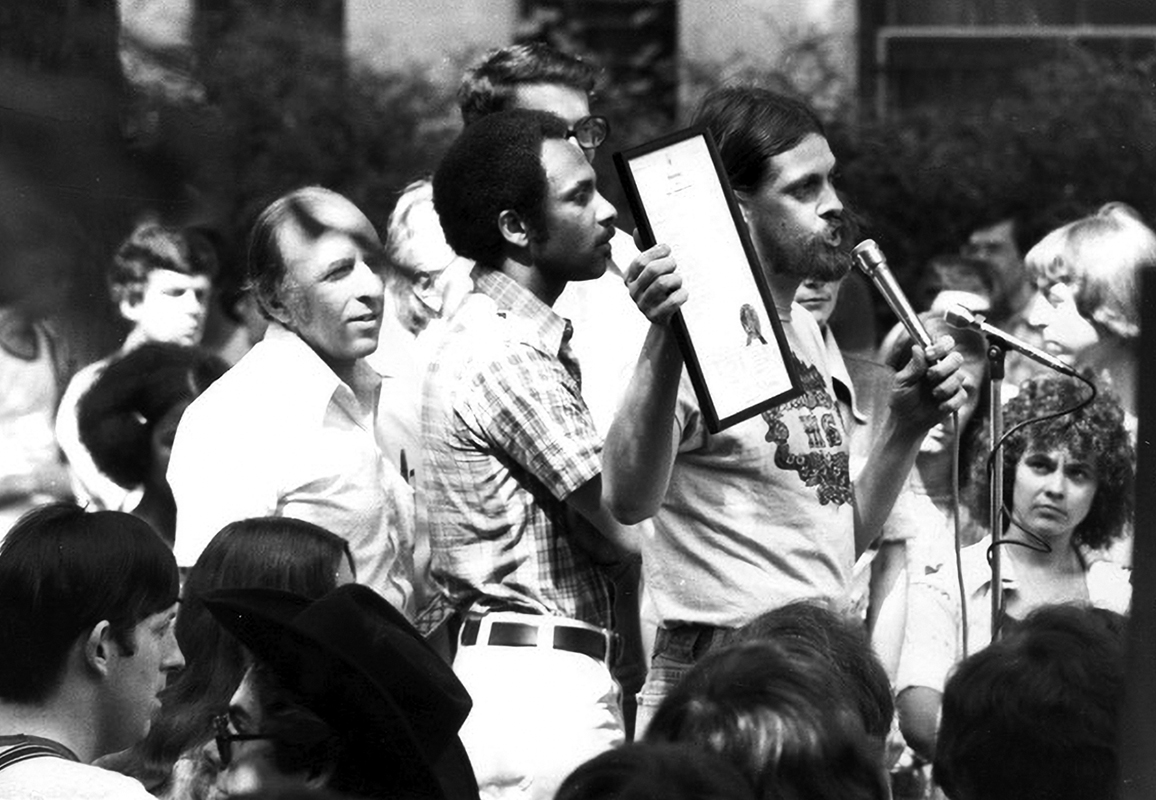

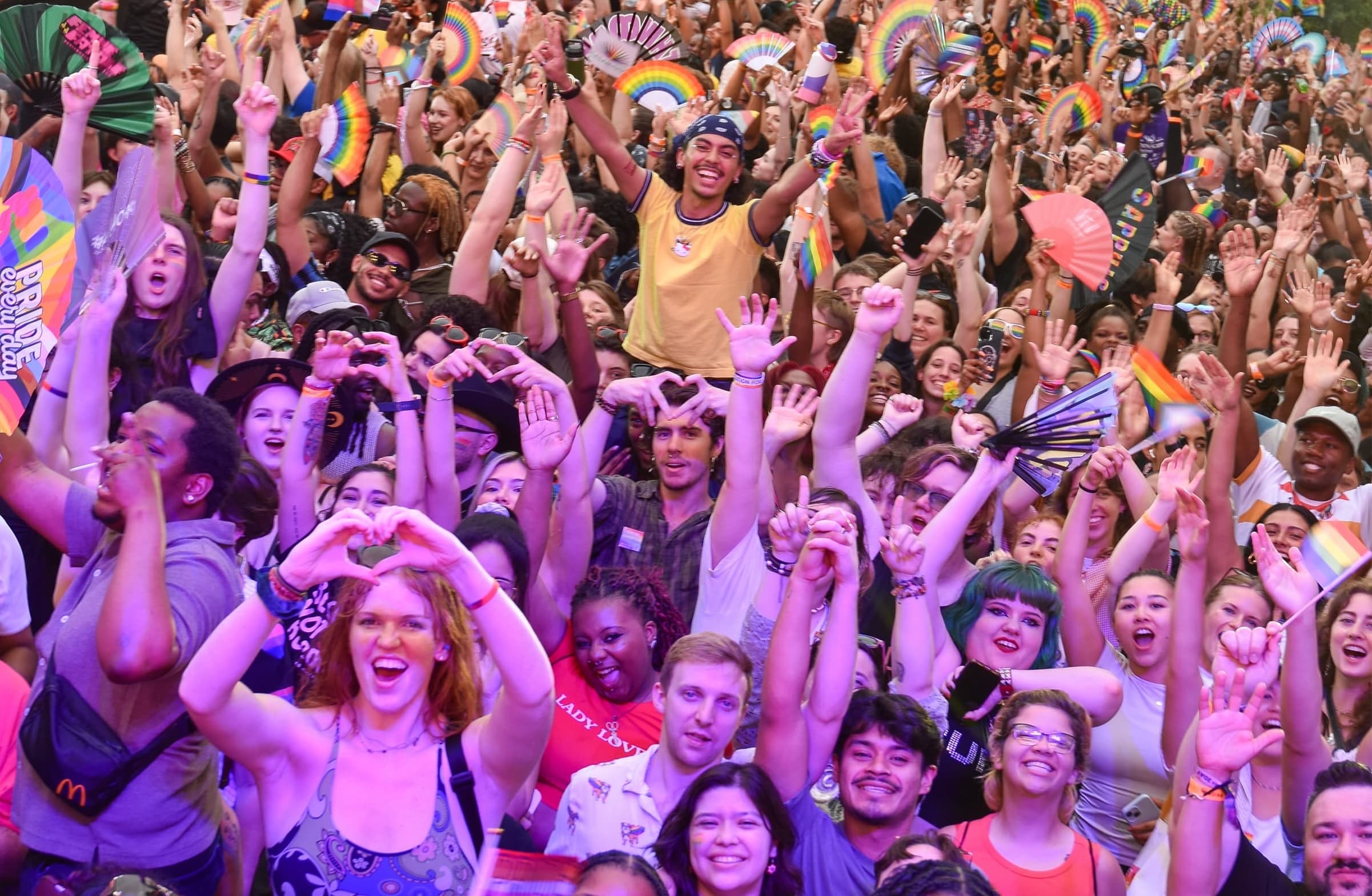












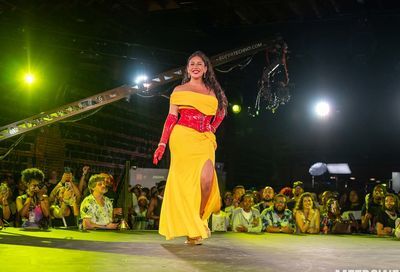
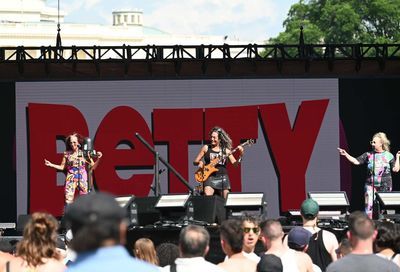
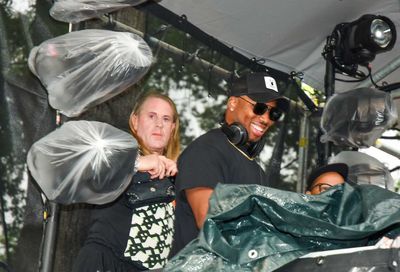
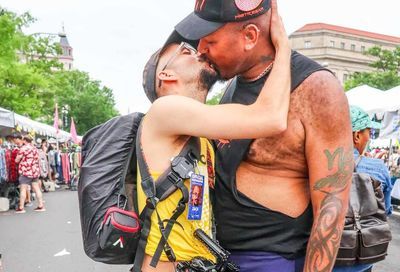
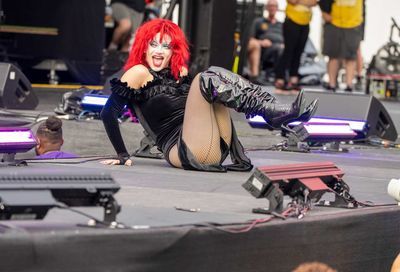

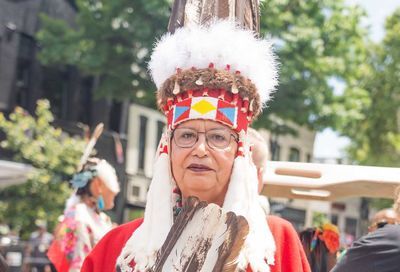
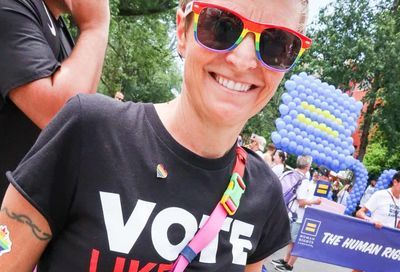
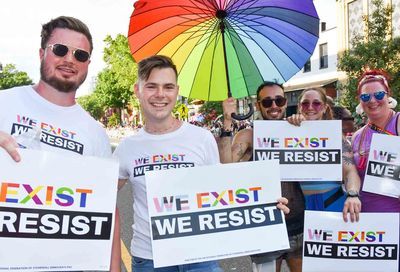
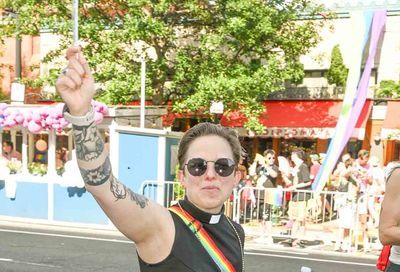
You must be logged in to post a comment.